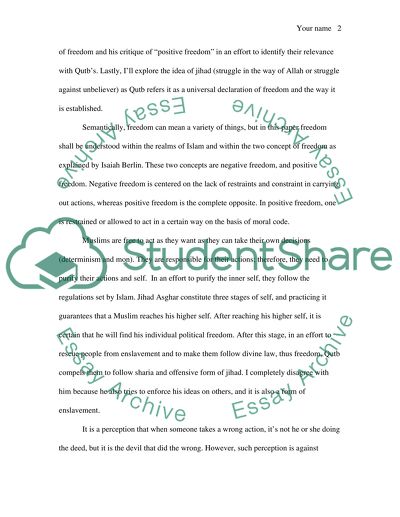Cite this document
(“The Political Freedom of Self Under Islamic Regulations Essay”, n.d.)
Retrieved from https://studentshare.org/religion-and-theology/1671676-the-political-freedom-of-self-under-islamic-regulations
Retrieved from https://studentshare.org/religion-and-theology/1671676-the-political-freedom-of-self-under-islamic-regulations
(The Political Freedom of Self Under Islamic Regulations Essay)
https://studentshare.org/religion-and-theology/1671676-the-political-freedom-of-self-under-islamic-regulations.
https://studentshare.org/religion-and-theology/1671676-the-political-freedom-of-self-under-islamic-regulations.
“The Political Freedom of Self Under Islamic Regulations Essay”, n.d. https://studentshare.org/religion-and-theology/1671676-the-political-freedom-of-self-under-islamic-regulations.


